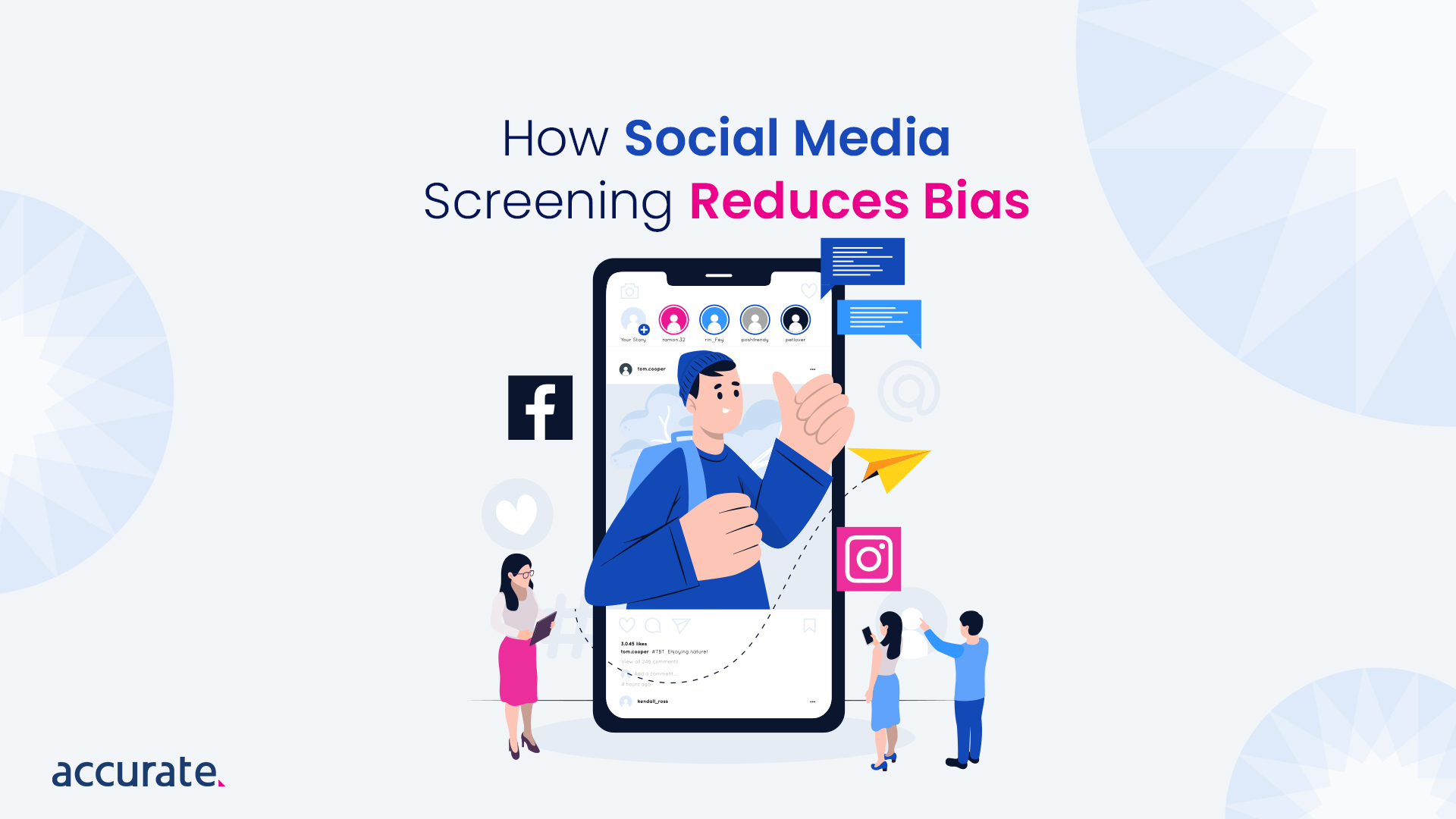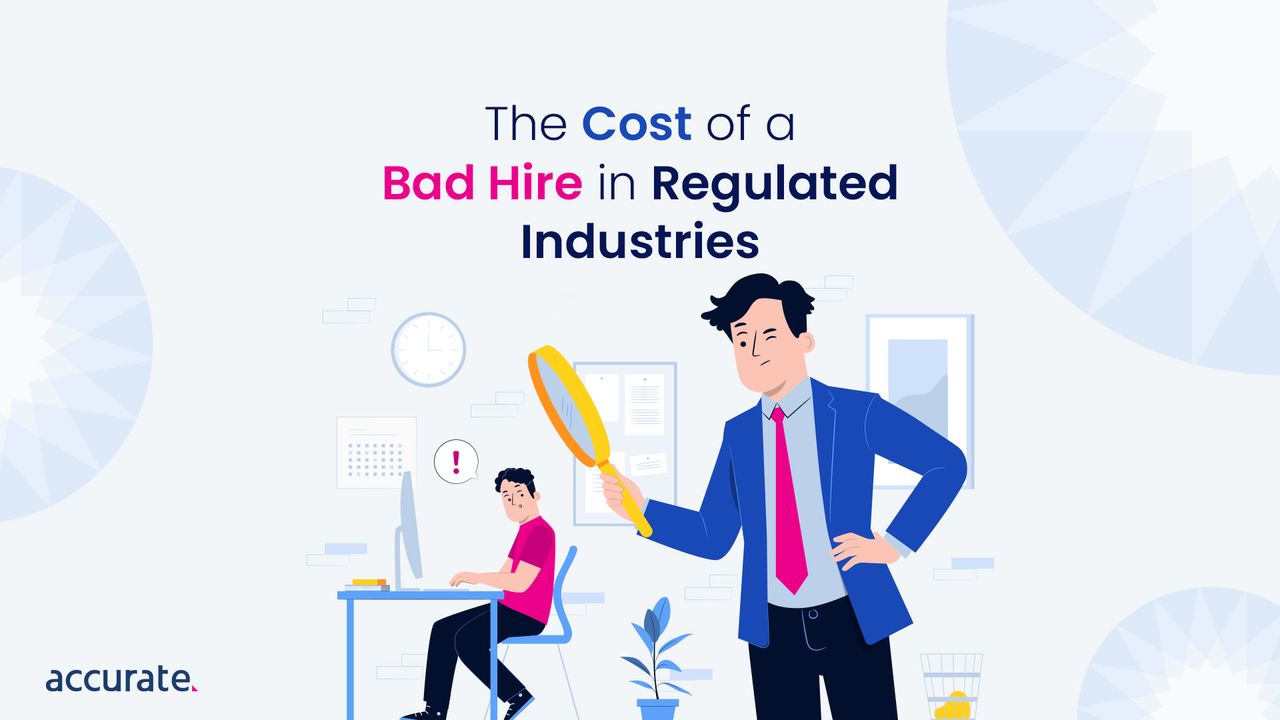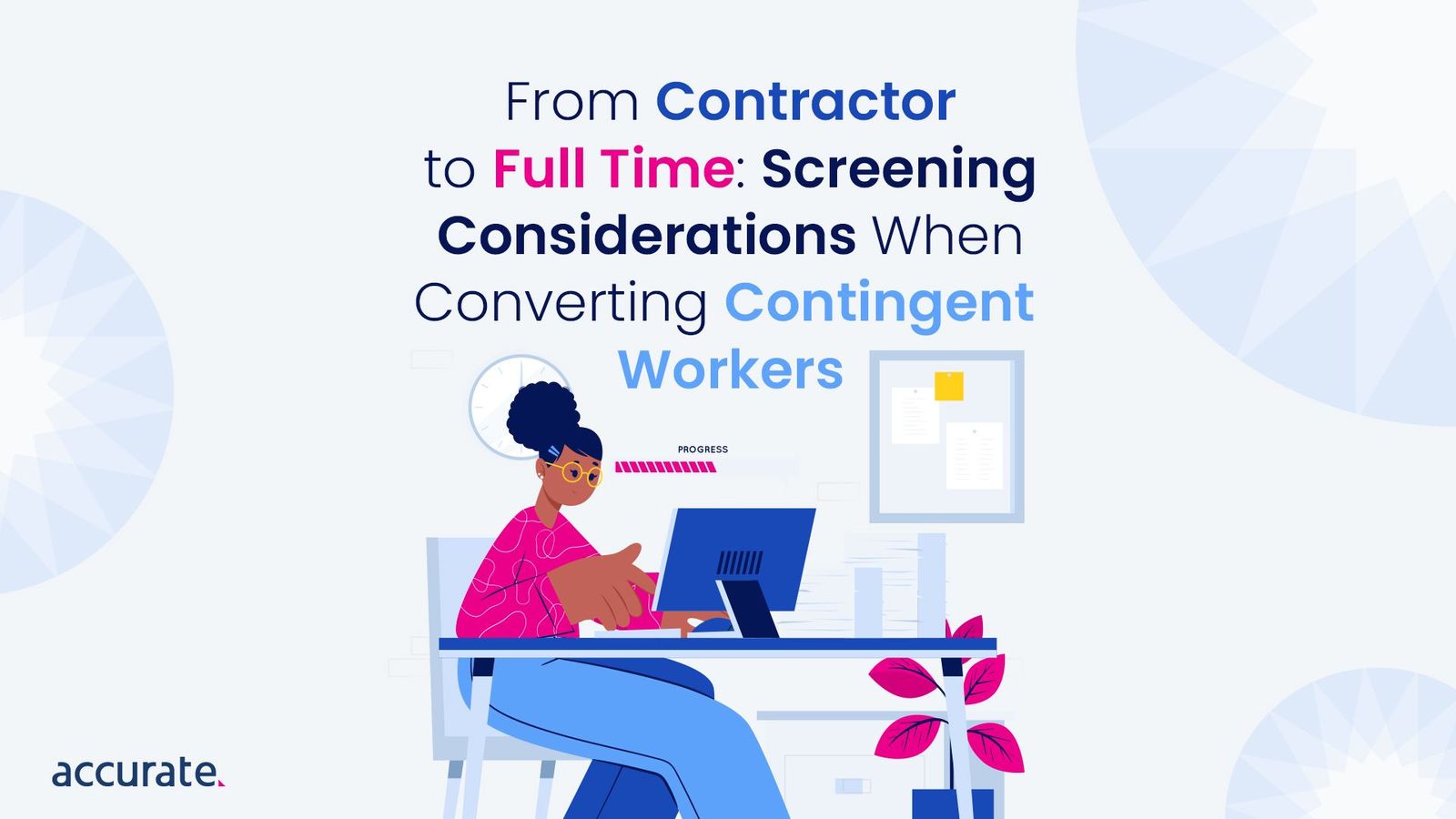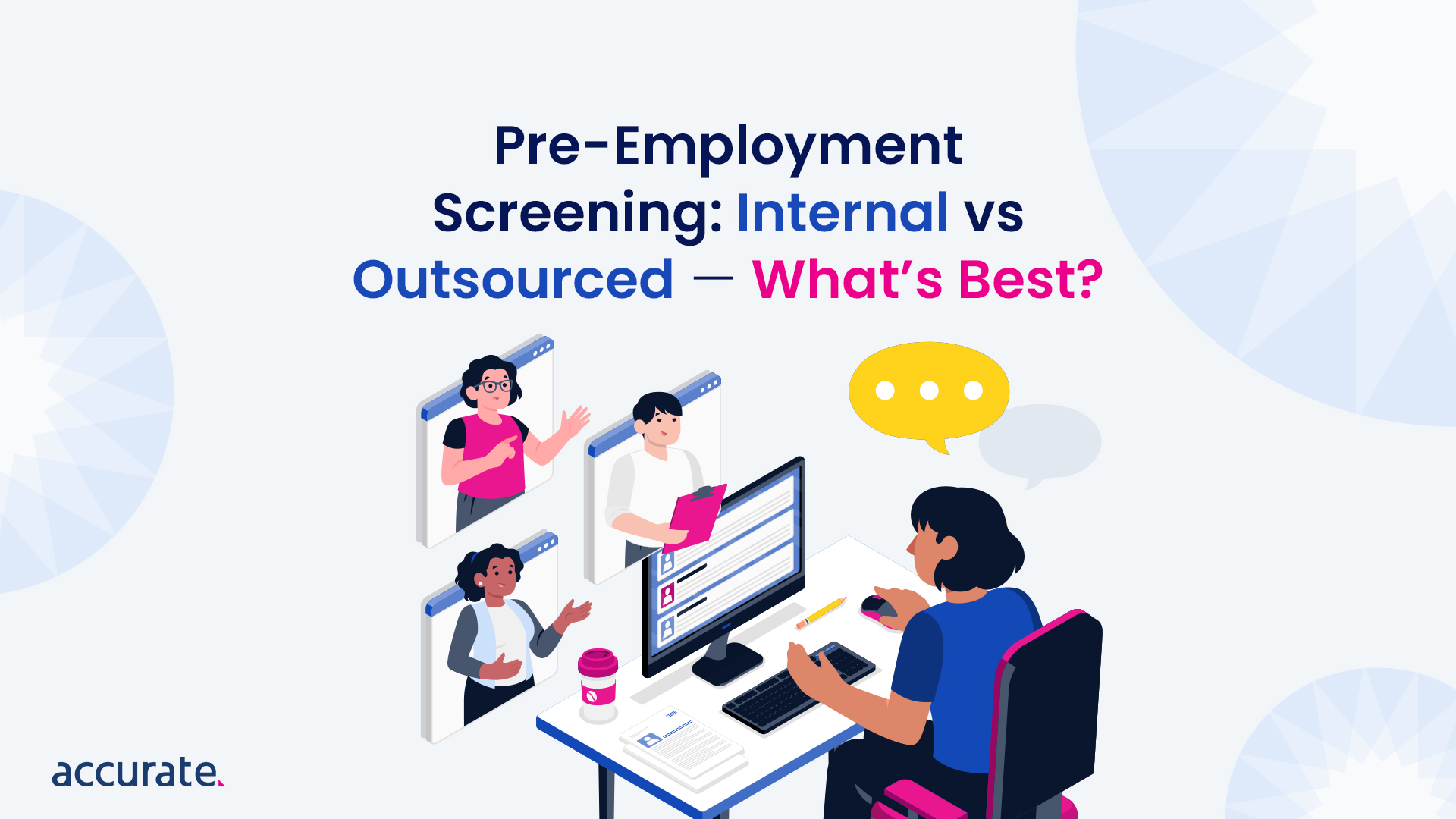In today’s interconnected world, social media has become more than just a platform for personal expression; it plays a significant role in shaping professional perceptions.
As a business deeply involved in the background screening industry, we have witnessed the evolution of hiring practices over the years, and one area that has gained considerable attention is social media background checks.
However, many organisations still rely on informal or manual social media checks, which can inadvertently introduce bias and inconsistency into the hiring process.
While some may view social media checks as an invasion of privacy, when done properly, they can actually serve as a protective measure for both candidates and employers. A well-structured, standardised approach to social media screening ensures fairness but also helps reduce bias, and improves the overall quality of hiring decisions.
What is Social Media Screening?
Social media screening analyses a candidate’s online presence and behaviour on social media platforms to assess their suitability for a job or role. This involves reviewing a candidate’s social media profiles, posts, and interactions to identify potential red flags, such as hate speech, bullying, or other inappropriate behaviour.
In the hiring process, social media screening is a crucial tool for employers, helping them identify potential risks and ensure that the candidate aligns with the company culture.
Benefits of Social Media Screening
There are several benefits to social media screening that make it an invaluable part of the hiring process:
- Improved Hiring Decisions: Social media screening provides valuable insights into a candidate’s behaviour and character, helping employers make more informed hiring decisions. By understanding a candidate’s online interactions, employers can better gauge their suitability for the role and the company.
- Reduced Risk: By identifying potential risks such as hate speech or bullying, social media screening helps prevent these issues from entering the workplace. This proactive approach ensures a safer and more respectful work environment.
- Enhanced Company Culture: Social media screening helps ensure that new hires align with the company culture and values, promoting a positive and inclusive work environment. This alignment is crucial for maintaining a cohesive and productive team.
- Compliance: Social media screening assists employers in complying with regulations and laws related to employment and hiring. Companies can avoid potential legal pitfalls and demonstrate their commitment to ethical hiring practices by adhering to legal standards.
The Problem with Ad-Hoc Social Media Background Checks
One of the most significant issues with ad-hoc or manual social media checks is their inconsistency, in addition to increasing the risk of oversights and inaccuracies. Hiring managers may focus on different aspects of a candidate’s online presence. For example, one manager might focus on a candidate’s professional connections, while another might scrutinise personal posts or photos. This lack of uniformity can lead to unfair evaluations and missed opportunities to identify the best talent.
Incorporating pre-employment background checks can help standardise this process and ensure a more comprehensive evaluation. Also, inconsistent checks mean that some candidates might be disqualified based on criteria not applied uniformly across all applicants. Not to mention risks of errors such as misidentification. This fragmented approach can result in a less reliable hiring process and ultimately impact the quality of the workforce.
Bias in Manual Screening of Candidate’s Online Presence
Manual social media checks are particularly vulnerable to bias. Whether consciously or unconsciously, hiring managers may allow their personal beliefs and preferences to influence their interpretation of candidate behaviours observed in a candidate’s online activity.
For instance, a manager might favour candidates whose views align with their own or penalise those with differing perspectives. This subjective judgment can lead to discrimination and hinder diversity within the organisation.
Bias can manifest in various ways—racial, gender-based, or cultural—and these biases can severely limit an organisation’s inclusivity efforts. A standardised approach to social media screening helps mitigate these risks by ensuring that all candidates are evaluated based on objective criteria rather than personal opinions.
Moreover, in instances where a candidate is not hired or loses an opportunity, they may argue that the reason for this was not due to professional reasons and was discriminatory. How can an employer avoid viewing information about protected characteristics and avoid exposing themselves to accusations of discrimination if conducting an ad-hoc social media search?
Addressing Privacy Concerns
A major concern surrounding social media screening is privacy. When hiring managers perform these checks informally or without clear guidelines, they may unintentionally invade a candidate’s privacy by accessing personal information that should not be considered in a professional context, even when evaluating a candidate’s online presence. This creates legal risks for the company and erodes trust between employers and potential hires.
Implementing a structured process ensures that only publicly available and relevant information is reviewed, protecting candidates’ privacy while maintaining the integrity of the screening process. By adhering to legal standards and respecting boundaries, companies can build a reputation as ethical employers who value both fairness and transparency.
The Role of Objective Criteria
Standardised social media background check processes address these challenges using predefined criteria to evaluate all candidates equally. These criteria focus on relevant professional behaviour and public posts rather than irrelevant personal details.
By applying the same standards across all candidates, companies can ensure that their assessments are fairer and more objective. This approach helps eliminate subjective judgment based on personal biases and ensures that only information pertinent to professional qualifications is considered. Ultimately, this leads to better hiring decisions while fostering an inclusive workplace environment.
Automation and AI: Enhancing Fairness
Technology plays a crucial role in reducing bias during social media screening. A social media screening service powered by artificial intelligence (AI) can analyse profiles objectively, flagging potential red flags such as inappropriate behaviour or hate speech without emotional bias. These AI-driven tools bring consistency to the evaluation process by applying uniform criteria across all candidates.
Moreover, automation enhances efficiency by allowing companies to screen large volumes of candidates quickly without compromising accuracy. As AI learns from data over time, it becomes even more adept at identifying patterns that could indicate potential risks or concerns—helping organisations make more informed hiring decisions.
Ensuring Legal Compliance
In addition to reducing bias and improving consistency, standardised social media screening processes, as part of comprehensive background checks, help ensure compliance with local laws and regulations.
If you’re looking to conduct social media searches locations in EU countries – it’s important to note some countries wouldn’t generally consider it appropriate to conduct searches against social media platforms (e.g. Facebook) as part of employment screening. We’d be happy to engage in further discussions around your requirements and relevant legislation if helpful.
By following a structured methodology, companies can avoid potential legal pitfalls related to privacy violations or discriminatory practices. Maintaining legal compliance protects companies from lawsuits and fosters trust among candidates who know their personal information is being handled ethically.
A commitment to legal and ethical standards demonstrates an organisation’s dedication to fair hiring practices—an essential factor in building a positive employer brand.
By adopting standardised social media screening practices, organisations can significantly reduce bias, protect candidate privacy, and enhance fairness throughout the hiring process. This shift towards more ethical recruitment strategies benefits employers and job seekers by creating a more inclusive and transparent workplace environment.
How Social Media Screening Works
Social media screening typically involves the following steps:
- Identification of Social Media Profiles: The employer or screening company identifies the candidate’s social media profiles across various platforms, such as Facebook, Twitter, and Instagram. This step ensures that all relevant online activity is considered.
- Review of Social Media Content: The employer or screening company reviews the candidate’s social media content, including posts, comments, and interactions. This comprehensive review helps identify any potential red flags or concerning behaviours.
- Analysis of Risk Classifications: The employer or screening company analyses the candidate’s social media content for risk classifications, such as hate speech, bullying, or other inappropriate behaviour. This analysis helps categorise the severity of any issues found.
- Reporting: The employer or screening company provides a detailed report to the employer, highlighting any potential red flags or concerns. This report serves as a valuable resource for making informed hiring decisions.
Best Practices for Social Media Screening
To conduct effective social media screening, employers should follow these best practices:
- Implement a social media policy: Employers should share a policy describing the expectations of individuals within the organisation (in respect to social media).
- Consent: Obtain authorisation from the candidate before performing the search.
- Clearly Define the Scope of the Search: Employers should define the scope of the search, including the social media platforms and the risk classifications to be analysed. This clarity helps focus the screening process and ensures consistency.
- Ensure Compliance with Regulations: Employers must ensure that the social media screening process complies with regulations and laws related to employment and hiring. Adhering to legal standards protects the company from potential legal issues.
- Provide Transparency: Employers should be transparent with candidates about the social media screening process and the criteria for evaluating their online presence. This transparency builds trust and demonstrates the company’s commitment to fair hiring practices.
- Use a Reputable Screening Company: Employers should partner with a reputable screening company specialising in social media screening – like Accurate. This ensures that the process is conducted professionally and ethically.
If you’re interested in learning how Accurate’s AI-driven Social Media Check can help your company reduce bias in its hiring process, contact Accurate Background today.
Key Takeaways
- Standardisation Reduces Bias: Implementing a structured social media background checks process helps eliminate bias by using predefined criteria to evaluate candidates, ensuring fairness and objectivity throughout the hiring process.
- Privacy Protection: A well-defined social media screening methodology respects candidate privacy by focusing only on publicly available and relevant information, thereby reducing legal risks and fostering trust.
- Leveraging Technology: Automated tools and AI enhance the screening process by providing consistent, objective evaluations and quickly analysing large volumes of data without emotional bias.
- Ensuring Legal Compliance: Adhering to legal standards in social media screening protects organisations from potential lawsuits and demonstrates a commitment to ethical hiring practices.
- Building an Inclusive Workplace: By reducing bias and respecting privacy, companies can foster a more inclusive and diverse work environment, enhancing their reputation as ethical employers.
- Improved Hiring Decisions: Objective social media screening leads to better-informed hiring decisions, aligning candidate assessments with professional qualifications rather than personal opinions.
DISCLAIMER: Accurate prepared these materials for informational purposes only. These materials are not intended to be comprehensive, and are not a substitute for, and should not be construed as, legal advice. Accurate does not warrant any statements in these materials. Employers should direct questions involving their organisation’s compliance with or interpretation or application of laws or regulations and any additional legal requirements that may apply, to their own legal counsel.



